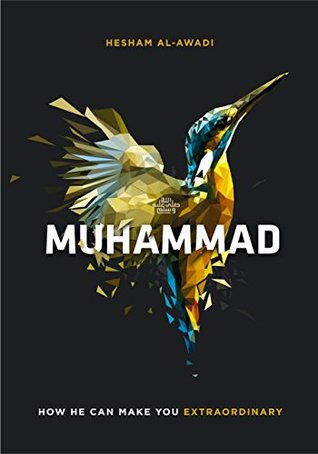More on this book
Community
Kindle Notes & Highlights
Read between
October 30 - November 4, 2022
showing children love fulfills their need to feel safe, strengthening their ability to adjust to their surroundings. Making a habit out of hugging your child, affectionately greeting her when she wakes up or comes home, kissing her, and playing with her improves her psychological health and sense of self-worth.
Constant affection is better than outpourings of affection only on special occasions.
Aminah gave priority to Muhammad’s emotional fulfillment over her own personal fulfillment, which is what makes her life so inspirational.
Also, the quantity of time matters just as much — if not more — than the quality of that time.
What is inspiring about the desert as a school during that historical period is that it was a stimulating environment for children’s physical and psychological education.
Consumption in those days was for survival, not for pleasure, and this harshly austere life trained Bedouins to bear trials and tribulations with stoicism.
Don’t overuse “don’t.” Instead of saying, “Don’t you raise your voice,” try “Lower your voice, please.” Offer practical, fun alternatives instead of constant scolding.
Studies have shown that children are most open to learning when they are playing, and develop valuable skills this way.3
The famous miracle of “the splitting of the chest”4 happened while Muhammad was playing with his friends, so don’t underestimate the importance of playtime, which is a perfect opportunity for children to grow and learn.
If we said earlier that Aminah fulfilled Muhammad’s emotional needs until he was six years old, it was Fatima who took care of her grandson from when he was six until he was eight.
He begins to build up self-esteem from his parents, and what they say about him becomes his inner voice about himself.
This helps lift the burden of childrearing from the parents alone, and is beneficial because children also need caregivers who have different experiences than the parents have.
Should an extended family not be available, it is crucial that your child has alternative caregiving models, such as neighbors, teachers or coaches.
This transformation has played out in Arab society as well, as the extended family’s ties have weakened and the nuclear family has borne alone the responsibility of raising children,
This is not a call to return to an easily romanticized past, but rather to give the extended family an active role and re-introduce it into the equation of child development.
The Prophet’s full name was Muhammad Abdullah Abdul-Mutallib Hashim Abd-Manaf Qusay.
Hashim: Originally named Amr, he came to be known as Hashim (“breaker of bread”) for his generosity in helping feed pilgrims.
Meccans took pride in passing down their family histories through stories and poetry. Thus, the extended family’s role was not limited to its living members, but also included those who had passed away, particularly if they had inspirational achievements.
The lesson Muhammad likely learned from Qusay was to draw the energy needed for change from within yourself, not from your surroundings, or else you will be unable to bring about change.
Hashim serves as a reminder that you don’t have to be rich to give generously, and that giving is not restricted to money, but could also include sharing your expertise or volunteering your time.
to emphasize the story’s impact on Muhammad’s childhood when he heard it, as a story of human determination to achieve one’s dreams, give back to society, and never give up regardless of the situation, even if others around you are surrendering. Instead, get up and try, try again.
to not panic when faced with challenges in life that could threaten your safety, but instead to keep your cool and have faith that God will be with you and will not forget you or be pleased with oppression, or with His places of worship being violated.
The fact that Abdul-Mutallib covered all of Aminah’s expenses suggests that the relationship between the wife and the husband’s family remained good, even without the husband’s presence.
look for those who support you (his sons, in this case); be grateful to God for the blessing of family; don’t be too stubborn to listen to advice from others (his friends); and air your ideas instead of being passive, since you could end up saving a life.
He learned sacrifice from Aminah, righteousness from Abdullah, a never-give-up attitude from Abdul-Muttalib, generosity from Hashim, and leadership from Qusay.
As the Egyptian poet Ahmed Shawqi said, a mother is a teacher, but a family is a greater teacher, because every member has his or her own unique experience that can help raise a child or may change a child’s life.


